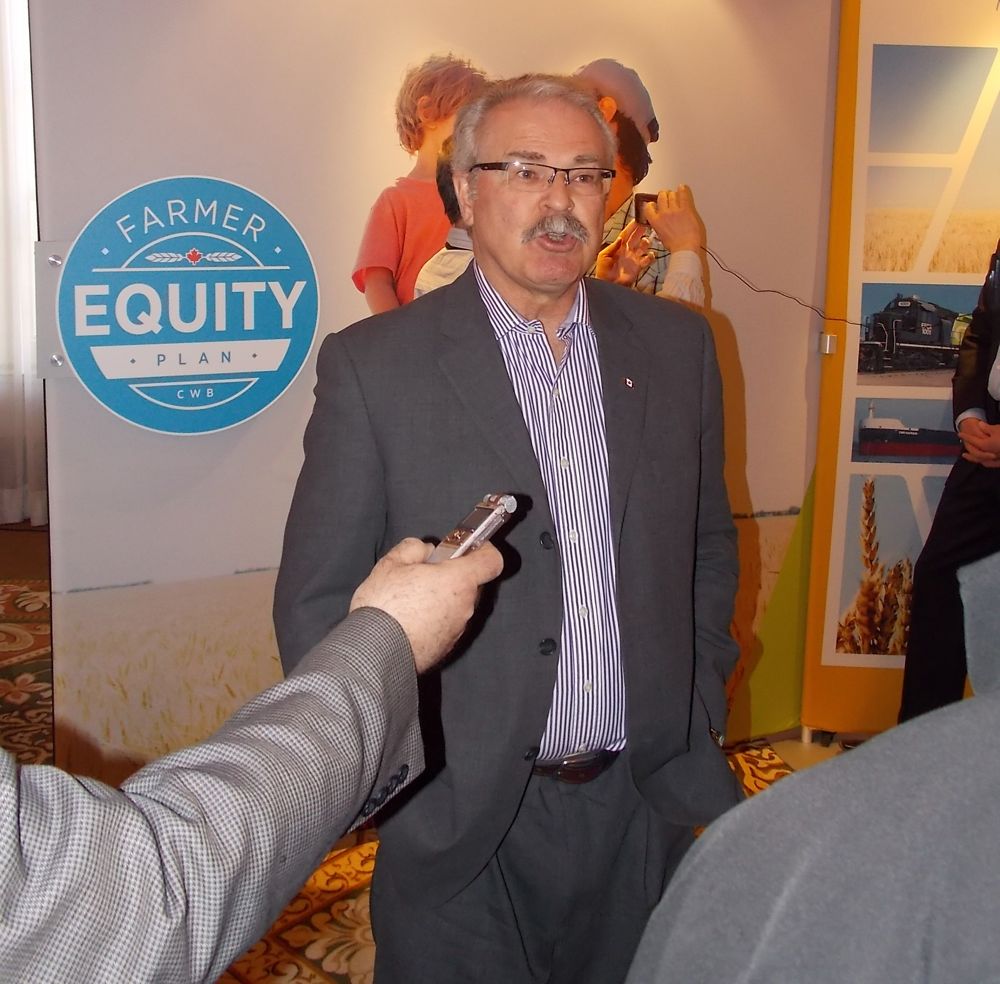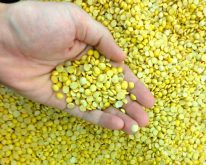The guessing game on whom the next agriculture minister will be is well underway in Ottawa although no obvious choice stands out.
Whoever Justin Trudeau selects will find Gerry Ritz a tough act to follow. During his eight years in the portfolio, he has put an increasing production and export stamp on the industry. And he caught a lucky bounce with strong commodity prices although the livestock sector had tough times.
Ritz flew around the globe more times than anyone can count promoting Canadian farm and food products. He can recite seemingly endless facts and figures about Canadian agri-food. He did a lot to convince the agriculture and food sectors into realizing they are partners in one of Canada’s most significant industries.
Read Also

U.S. grains: Chicago corn, soy prices recover on updated biofuel guidance
Chicago | Reuters – Chicago grain and soybean futures regained ground on Tuesday as a selloff in commodity markets subsided…
Despite his accomplishments and the support he gathered in the agri-food sector, he rarely received the credit he deserved from his own government. After all he did to promote the would-be Canada-Europe free trade deal, he wasn’t included in the herd of ministers who announced its completion.
The only veteran members of the Trudeau team with a connection to agriculture are Ralph Goodale, a former ag minister and the party’s deputy leader, and Wayne Easter. He has deep roots in farming and cabinet experience which will likely land him a senior cabinet post. Mark Eyking was the Liberal agriculture critic for the last few years but his Nova Scotia riding is too far removed from mainstream Canadian agriculture. He’s expected to land a regional portfolio.
Insiders note that Trudeau, who made a good impression on delegates in an address to the annual meeting of the Canadian Federation of Agriculture in 2014, thinks of the agri-food sector as an agriculture, food and consumer continuum. As he has mostly urban MPs, he may have no choice but to select an urban MP.
The insiders expect the Liberals’ food platform, released during the campaign, will become required reading for everyone in the sector.
Ritz, who was first elected in 1997, served as Reform ag critic, then the Conservative chair of the Commons agriculture committee before being appointed to cabinet. He is well liked among farm organizations except for the NFU, which is still smarting over the end of the Canadian Wheat Board. It’s the same amongst the myriad of organizations involved in the food and beverage sector.
From a personal perspective, Ritz was remarkable in that unlike most of his prickly Harper cabinet colleagues, he retained a sense of humour and was always civil in dealings with the media, political opponents and critics. A sense of humour is a rare commodity in politics but he ranked with Don Jamieson and Herb Gray in finding the amusing side of many issues. It showed through during the CFA’s agriculture issues debate a couple of weeks ago.
That said, he missed two opportunities to put this respect to good use.
One was in October 2013, when CN CEO Claude Mongeau rang the alarm about a massive Prairie crop that would require a lot of co-operation to ship. Two months later Ritz was still insisting the grain was moving when it wasn’t. Ritz should have jumped on Mongeau’s comment to convene a meeting of farm groups, grain companies and the railways to get the grain moving. He had the creds to do that.
The other was supply management. Dairy supply management has been around for 40 years and the poultry boards aren’t far behind. They were designed for a much different agriculture than we now have. Ritz could have used his good standing with the boards to have the Commons or Senate agriculture committee take a long hard look at what works and what doesn’t. This should be an exercise in what changes are needed to make supply management relevant to 2020, not 1970.
Of course, even if he had wanted to take either initiative, there’s no guarantee the cabinet would have backed him.
Hopefully the history books will give Gerry his due.
— Alex Binkley is a member of the Parliamentary press gallery in Ottawa and a freelance reporter on federal agriculture, food safety and transportation policy and other issues for newspapers and farm journals across Canada and abroad. Follow him at @AlexBinkleyWrit on Twitter.















